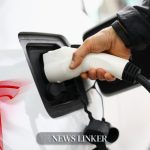Tesla’s remarkable recovery in the South Korean auto market has captured the attention of industry observers. After a startlingly quiet January, where the electric vehicle giant sold only one car across the country, Tesla rapidly ascended the ranks to surpass Mercedes-Benz, becoming the second-largest vehicle importer in South Korea by March 2024. This success reflects Tesla’s growing global influence and the shifting dynamics within the automotive industry.
The electric vehicle (EV) market has seen tremendous growth over the years, with Tesla often at the forefront of this expansion. In the South Korean market, Tesla’s journey has been particularly noteworthy. Despite a slow start in early 2024, by March, Tesla made a significant comeback. This surge can be attributed to the increasing popularity of EVs, supported by government incentives and the introduction of more affordable models that cater to a wider spectrum of consumers. Such factors have undeniably altered the competitive landscape of vehicle imports in South Korea.
March 2024: A Month of Triumph for Tesla
According to the Korea Automobile Importers & Distributors Association, South Korea welcomed over 25,000 newly registered imported vehicles in March, marking a year-over-year increase. Of these, Tesla claimed an impressive share with 6,025 units. The electric car maker’s success was not only a testament to its resilience but also a signal of the rising preference for electric vehicles in the country.
Factors Behind Tesla’s Soaring Sales
While Tesla soared, competitors faced challenges. Mercedes-Benz encountered delivery delays influenced by geopolitical tensions, which affected their vehicle registrations. Tesla, on the other hand, benefitted from the Model Y’s success, selling thousands of units and outpacing rivals such as the BMW 5 and Lexus ES. The Model Y’s affordability in the South Korean market, compared to its US pricing, played a crucial role in its popularity.
Expanding EV Market and Government Incentives
The resurgence of Tesla’s sales coincided with the government’s renewed push for EV adoption, offering incentives that likely contributed to the automaker’s success. Such incentives are part of broader efforts to promote environmentally friendly transportation solutions.
The narrative of Tesla’s prominence in South Korea resonates with trends observed in other articles. For instance, an article titled “The Electric Vehicle Market’s Rapid Expansion” from Green Car Journal discusses the overall growth in EV sales worldwide, attributing it to advancements in EV technology and increased environmental awareness. Another relevant piece, “The Rise of Affordable Electric Cars” from Auto Innovate, highlights how the introduction of cost-effective models has broadened the consumer base for electric vehicles, making them more accessible to the average buyer. Both articles underscore the significant factors propelling Tesla’s march to success in international markets like South Korea.
Useful Information for the Reader
- Tesla’s success in South Korea showcases the growing global appeal of electric vehicles.
- Government incentives play a pivotal role in boosting EV sales and consumer adoption.
- Affordable pricing strategies can significantly influence an EV model’s market performance.
As the dust settles on Tesla’s March victory, the automotive world witnesses a clear indication of shifting consumer preferences and market dynamics. Tesla’s ability to bounce back and overtake a traditional powerhouse such as Mercedes-Benz underscores the potential for electric vehicles to lead future market trends. Moreover, the company’s adeptness in pricing strategy and capitalizing on government incentives points to a shrewd understanding of the market. With the Model Y’s stunning performance and the potential for future government-backed EV incentives, Tesla is well-positioned to maintain its momentum on the global stage.










